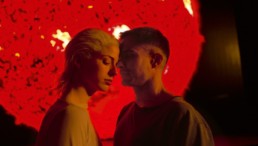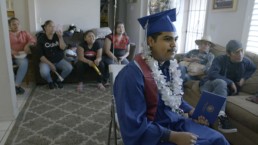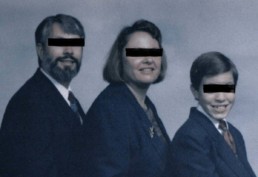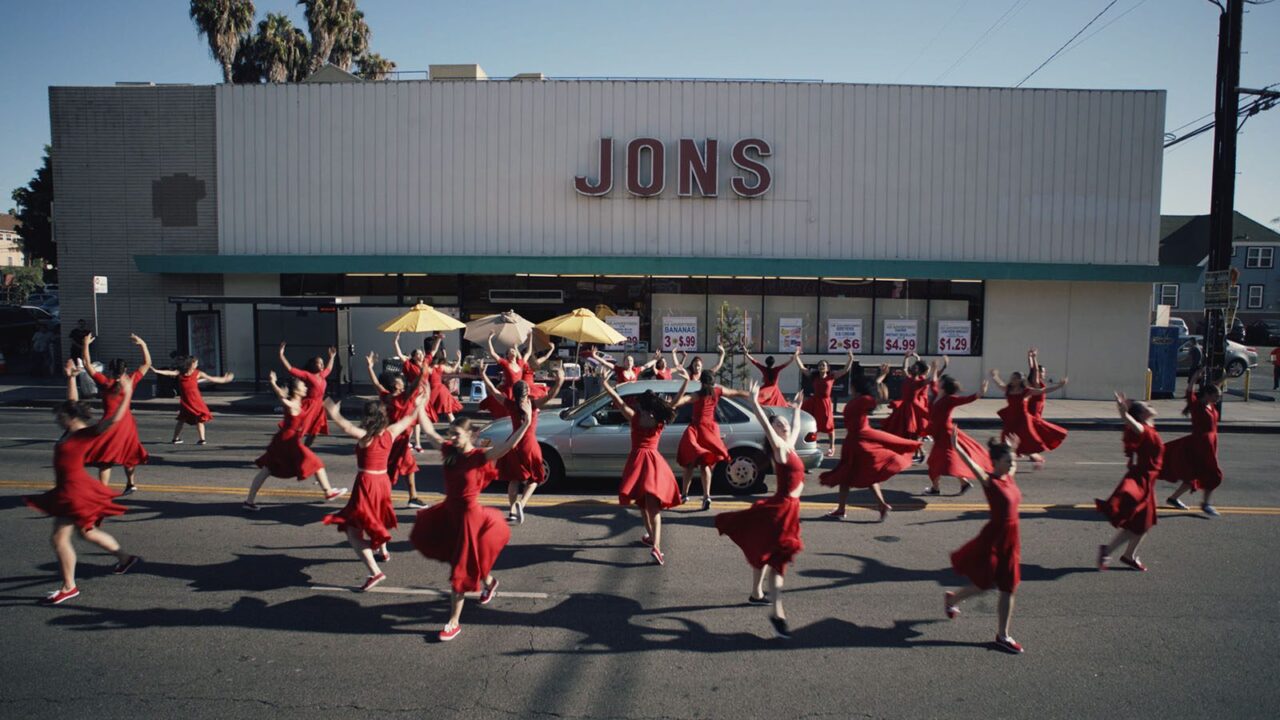The Sexually-Charged Dance Drama 'Ema' Will Hypnotize You
Set in the neon-soaked Chilean city of Valparaíso, Ema is a sexually-charged dance drama about regret, redemption, and reggaeton. It's a film that provokes and will make one question the expectations of the traditional family dynamic. Larraín doesn't shy away from exploring ugly behaviors and self-serving desires that are usually only thought about and rarely acted upon, yet Ema acts on them all.
Ema (Mariana Di Girolamo) is a dancer in an ensemble troupe lead by her partner and famed choreographer Gastón (Gael García Bernal). What we assume was once an intense and passionate relationship is now all but sizzling after a traumatic incident puts the couple at odds with each other and seeking a divorce. After multiple disturbing incidents with their adopted son Polo (Cristián Suárez), a troubled eight-year-old boy with seemingly sociopathic tendencies, Ema and Gastón resort to giving the boy back to foster care, a decision that is met with judgment from others. Their regret isn't immediate but rather culminates over time. Once realized, Ema sets out to get Polo back, willing to do whatever (and whoever) in the process.
I can best describe Ema as a mix between Gaspar Noé's Love meets Luca Guadagnino's Suspiria, but this film hits very specific psychological notes that make it wholly unique. Strong performances really draw the audience into the world of Ema- most notably the controlling yet sensitive nature of Gael García Bernal's Gastón opposite Ema's fearlessness and defiant personality traits portrayed by Mariana Di Girolamo. Larraín also reteams with recording artist and experimental composer Nicolas Jaar (Neruda) to create another pulsating and equally unsettling score. The ambient electronic nature of Jaar's work gives off an air of sensuality, self-indulgence, and uninhibitedness that lingers long after watching.
A true art-house production, Ema is a hypnotic watch that will get your blood pumping and mind reeling with amazement.
This review originally ran on May 5, 2020 for MUBI's screening premiere.
Distributed by Music Box Films. 'Ema' opens at the Landmark Theaters Nuart this Friday, August 13th.
'Homeroom' Captures College Anxieties Amidst COVID
2020 was a challenging year for all of us but it was especially hard for high school seniors as the expectations of lavish graduation parties, prom dresses, and college-bound dreams were dashed in a matter of days. From director Peter Nicks and produced by Ryan Coogler, Homeroom follows the 2019-2020 class of Oakland High School seniors as they attempt to create systemic change and leave a lasting legacy in their hometown while adjusting to life in a pandemic.
Homeroom feels very much like A24's Boys State in the way it captures intimate and vulnerable moments from impressionable and impassioned teenagers. Sticking to his signature style of vérité filmmaking, Peter Nicks observes a handful of students as they prepare to submit college applications, sit through mundane history lectures, attend various club meetings, and rehearse for the school play.
The documentary begins in the fall of 2019–pre-pandemic–when the biggest topic of conversation is the ethics of policing in schools. Students want to defund the police, citing that implicit bias sparks unnecessary fear, especially in predominately black and brown schools like theirs. Their arguments are articulate and strong, appealing to city council members and school board members alike.
The film takes a turn with the introduction of COVID-19 in early March 2020, picking up a sense of urgency that differs from the more structured first Act. As Homeroom shows, the seniors of today are highly adaptable, goal-oriented, and inspired teenagers. They use their iPhones to create TikTok videos, as well as catch up on the latest from ex-President Trump's first impeachment trial. They're paying attention. They don't fear speaking up to authority figures; instead, they see teachers and faculty as their allies who share a common goal of unifying the school district in harmony.
From the everyday pressures of high school life to the unexpected introduction of COVID-19, Nicks lets the action and drama unfold onscreen without provocation, capturing a year's worth of trauma that is uncomfortable to relive. The murders of George Floyd and Breonna Taylor, "murder hornets", and the racially-charged murder of Bay area teenager Nia Wilson are just some of the devastating events that this class has had to navigate through.
Homeroom proves that the youth have the power, and fostering safe environments for them to grow and learn will be key in creating tomorrow's leaders. On a personal yet somber note, the film is dedicated to Karina Nicks, Peter's 16-year-old daughter who died suddenly in September 2019. As the final installment to Nicks' three-part trilogy of character-driven social issue films, Homeroom is a gratifying and inspiring ending to this chapter on Oakland, CA.
This review originally ran on January 29, 2021 during the Sundance Film Festival.
Distributed by Hulu. 'Homeroom' premieres on Hulu on Thursday, August 12th.
Fantasia Fest 2021: 14 Films We're Looking Forward to Seeing
Today kicks off the beginning of Fantasia Fest 2021, the Montreal-based, multi-week showcase with the reputation for being "the most outstanding and largest genre film festival in North America." The Canadian festival has been on our radar for years and we're excited to bring you along as we (virtually) embark on our inaugural Fantasia journey.
Mad God
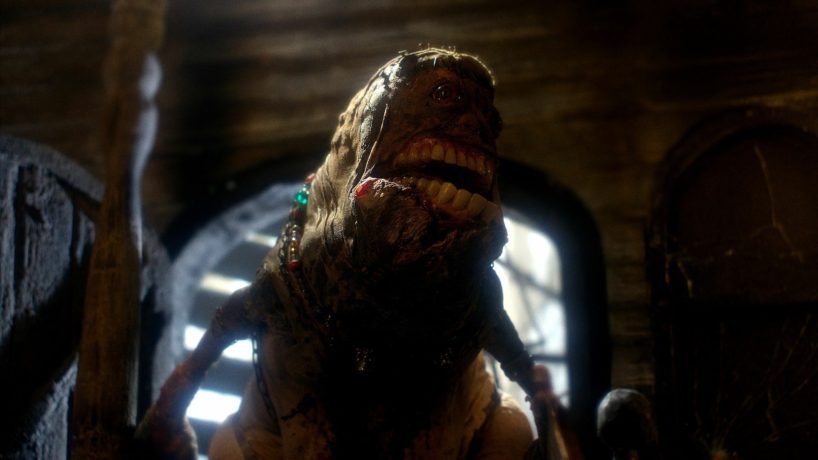
The Deep House
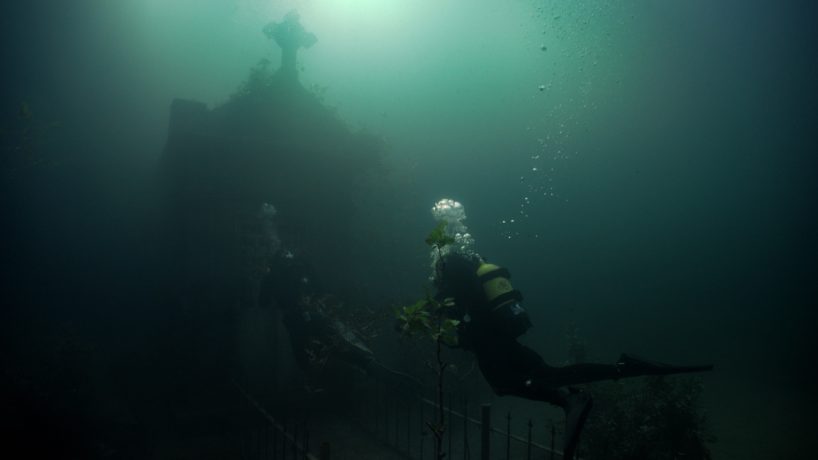
King Knight
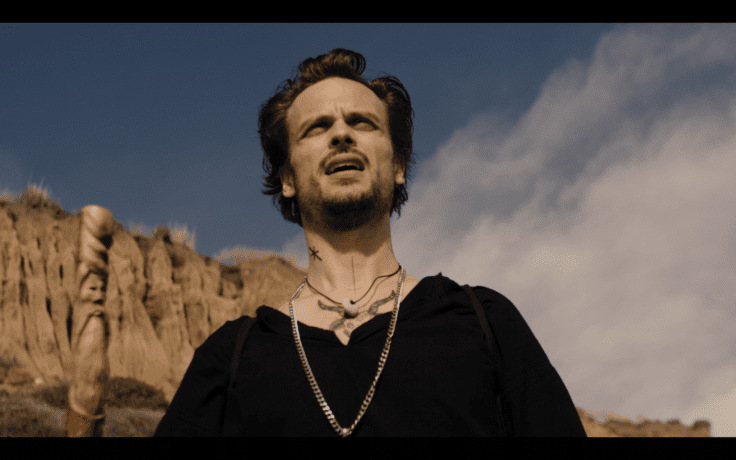
Midnight
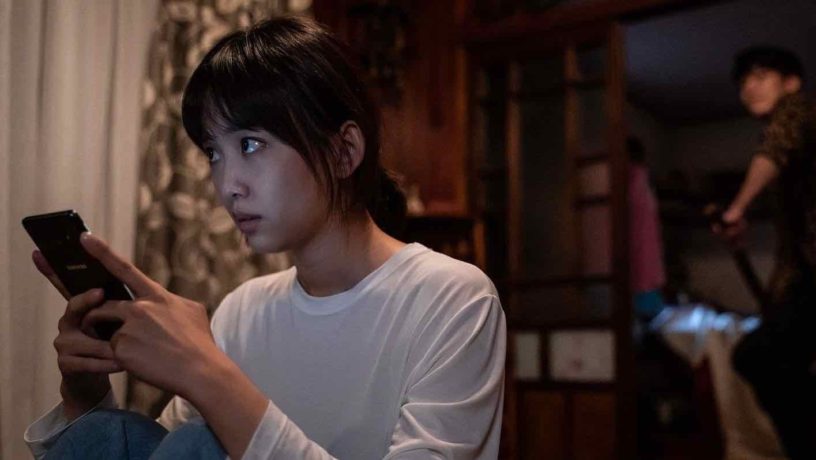
Pompo: The Cinéphile
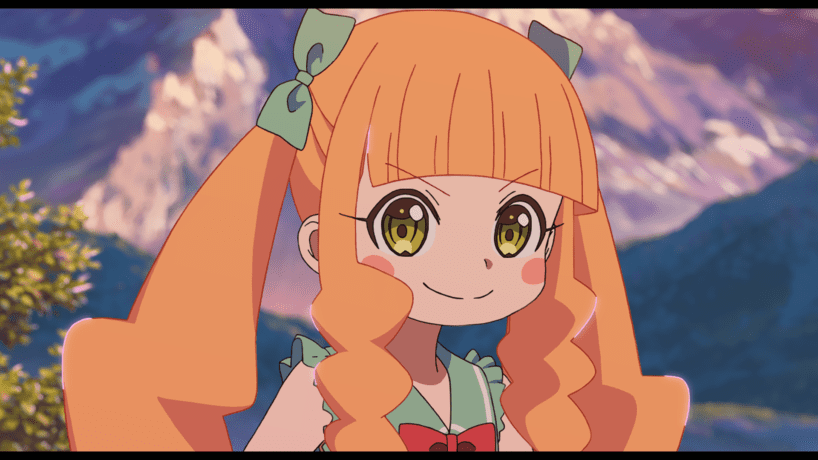
Dreams on Fire
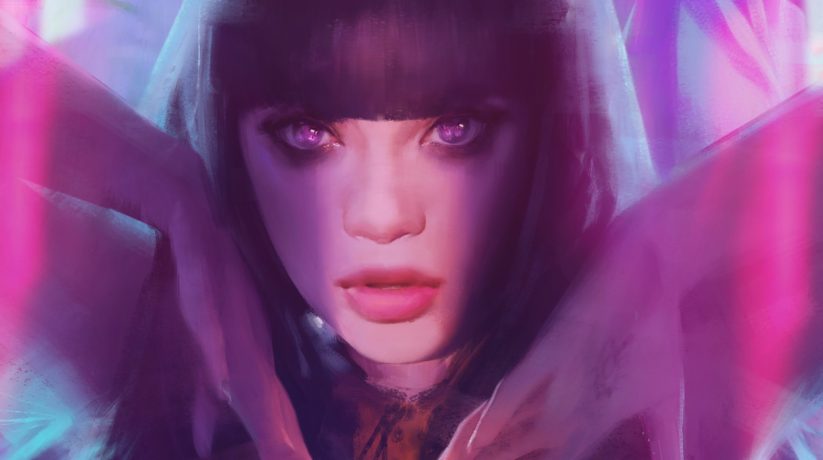
The Last Thing Mary Saw
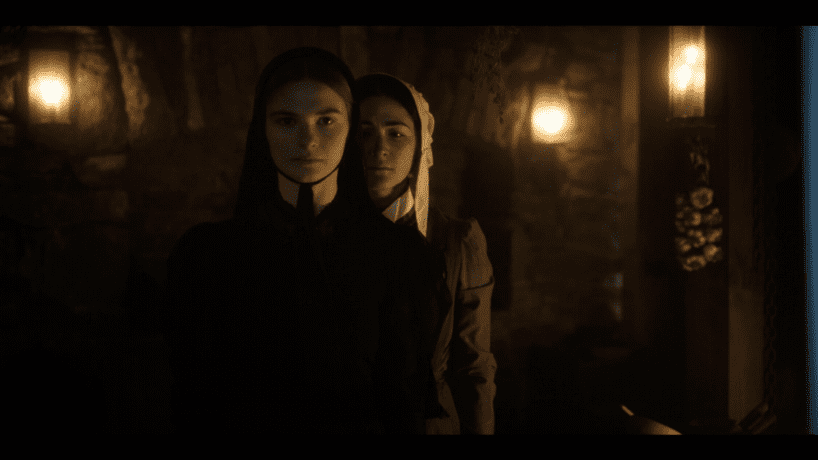
Love, Life and Goldfish
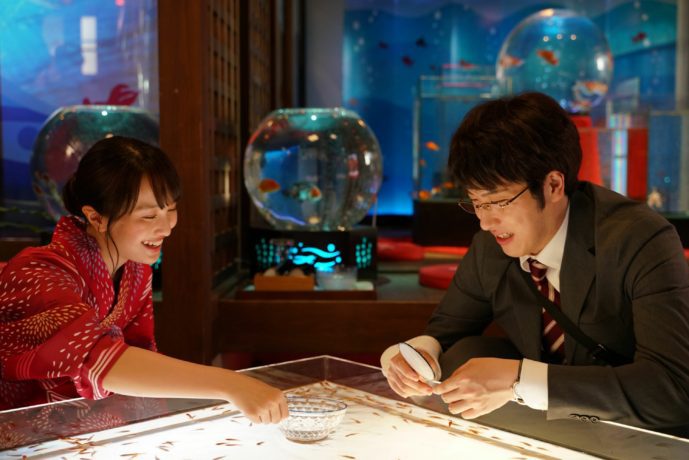
Giving Birth to a Butterfly
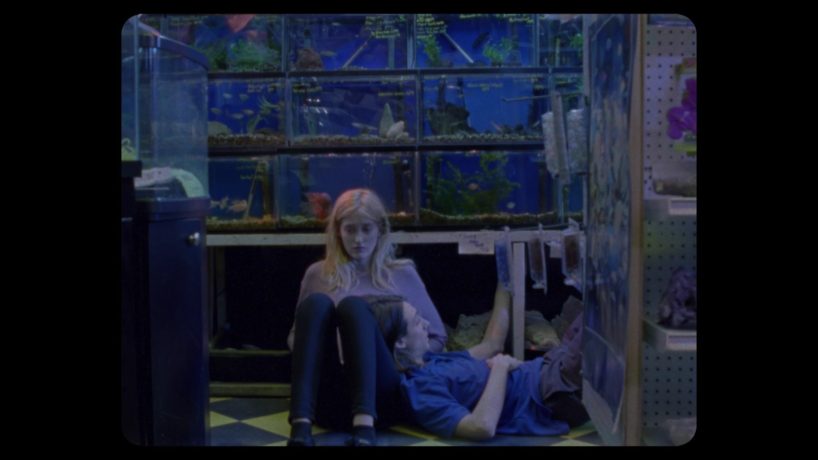
Dr. Caligari
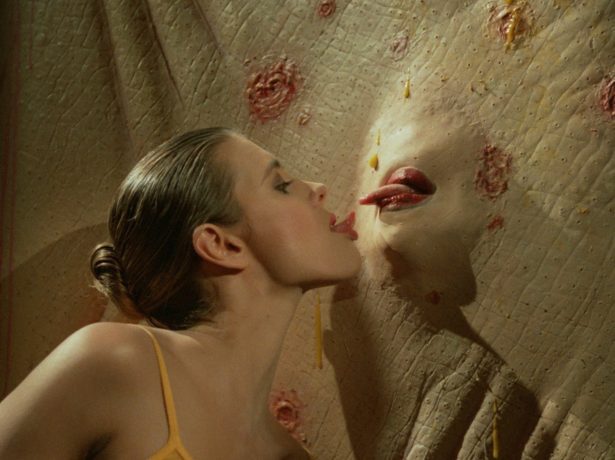
Prisoners of the Ghostland
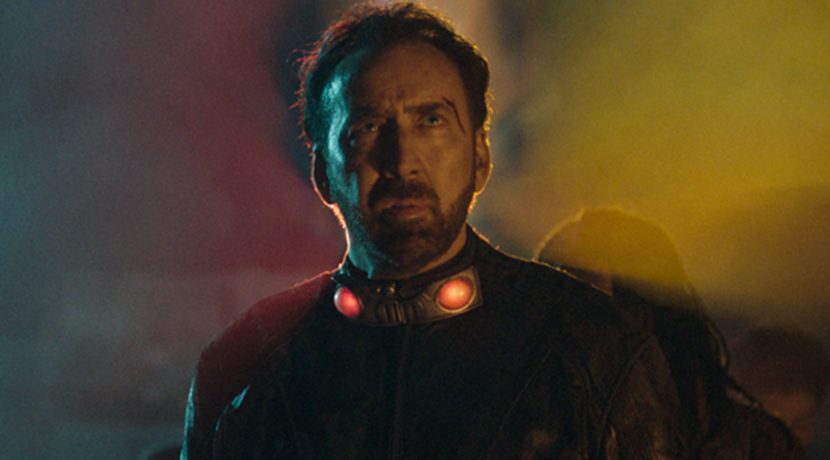
Follow the Light

Strawberry Mansion
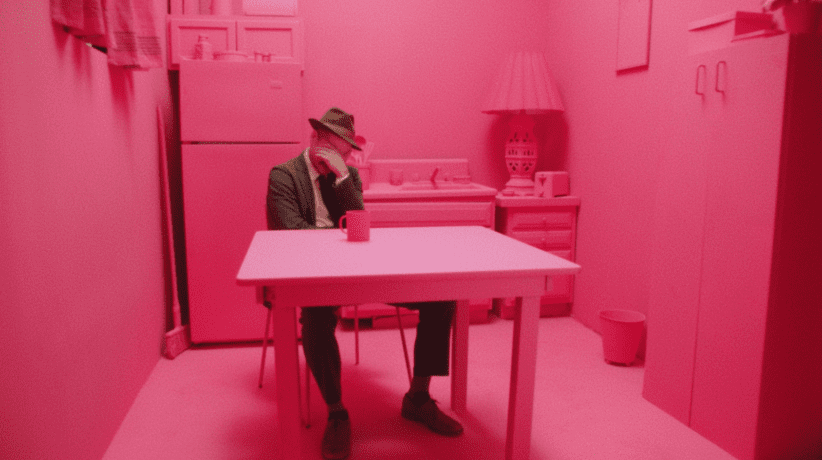
Ultrasound
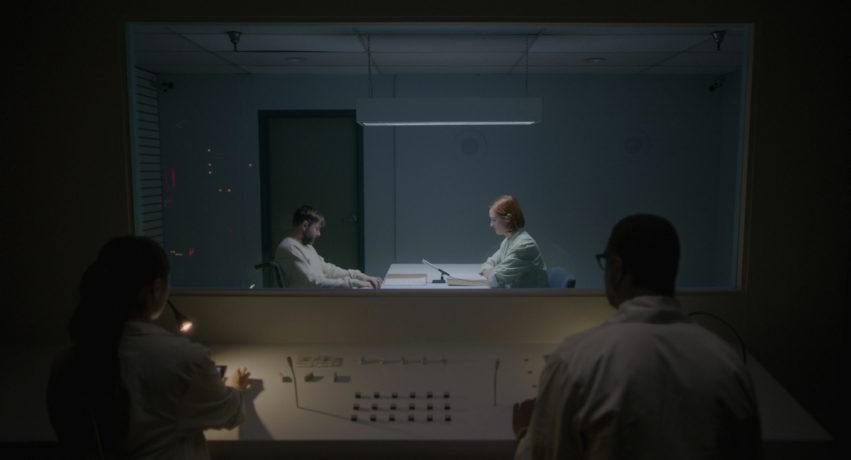
'Whirlybird' Review: Capturing Serenity and Chaos Over the Clouds
In Matt Yoka’s debut feature documentary, Whirlybird, audiences are taken on a visual journey of the City of Angels in the 90s through the lens of journalist Bob Tur and his wife Marika Gerrard, the couple responsible for capturing the iconic ariel video footage of the OJ Simpson pursuit, the Rodney King riots, the Northridge earthquake, and so much more. Infamous for his risky (and often illegal) methods of “getting the shot,” Bob was a relentless reporter, in love with the excitement and thrill of the chase. However, the documentary digs deeper, beyond his success as a journalist, and into Bob’s volatile, explosive, and obsessive behavior that puts not only his relationships but his physical and mental health at risk.
In the world of journalism, Bob Tur is credited for revolutionizing breaking news by changing the way news was captured: via helicopter. Bob and Marika were never far from a crime scene, murder, fire or flood – hanging out of a helicopter, camera in hand and ready to film. However, Bob’s personal life was fraught with torment. Not only was he constantly fighting with his wife, his employees, and the authorities, he was also struggling to accept himself as a trans man, which the documentary only focuses on in the last fifteen or so minutes of the film. The story of Whirlybird is primarily about the revolution of the news industry, not the reinvention of Bob Tur, who now goes by Zoey. Unfortunately, more focus on his personal struggle would have made this film a lot stronger and more memorable.
Bob was the original TMZ. He was a pioneer, and his legacy will never be forgotten. However, through raw and vulnerable interviews, he admits to living a life full of regret. It’s as if he questions if this was all even worth it, a difficult sentiment to hear someone say aloud. The relentlessness of capturing the headline news will affect any man over time, much like it did Bob Tur. For Angelinos especially, Whirlybird – with original music by Ty Segall – is a fascinating retrospective of our city from above as we navigate the fine line between serenity and chaos from among the clouds.
The review originally ran on February 3, 2020 during the Sundance Film Festival
Distributed by Greenwich Entertainment. Playing in select theaters, including Laemmle Glendale, and VOD this Friday.
'Enemies of the State' Review: A Teen Anarchist Takes on America
Matt DeHart may not have the same name recognition as Julian Assange or Chelsea Manning, but his self-proclaimed capability to expose the U.S. government for what they truly are: emotionless, ruthless, international murderers is just as feared as the actions of the aforementioned WikiLeaks founder and US Army vet turned whistleblower. In the new documentary Enemies of the State, viewers are introduced to the DeHart family, a nerdy and frantic family of three, who find themselves at the center of espionage accusations when Matt's ties to Anonymous and the dark web are exposed.
Convinced of Matt's innocence, the DeHart's believe that they're being unfairly targeted by the government in a wild conspiracy theory, which sends them to seek asylum in Canada. Perhaps they're on to something, but their claims weaken when evidence of child pornography on Matt's computer (plus victim statements) directly point to him. But Mr. DeHart, a current pastor, and Mrs. DeHart are in denial; instead of confronting the possibility that their son might be guilty, they come up with varied excuses. Many times throughout the film we are left wondering, are they really that oblivious, blinded by a parent's love? Or is the truth really stranger than fiction?
Nominated for "Best Documentary Feature" at the 2020 Tribeca Film Festival, Enemies of the State was brought to the screen by some heavy-hitters. Directed by Sonia Kennebeck and executive produced by Errol Morris, the film is a hybrid blend of documentary and fiction storytelling from the perspective of unreliable, biased narrators, which makes for an anxious watch. While Matt's parents are in the film playing themselves, Matt is played by actor Joel Widman (the reason for Matt's absence is explained in the film). Interviews with government officials, lawyers, and reporters are all real, including the sound recordings from Matt's court trial, but set to a fabricated recreation of those court scenes.
The aesthetic of Enemies of the State feels as sterile as the maximum-security prison cell Matt was kept in, stripped bare and unforgiving. It's a twisty story that I found myself rewinding a couple of times throughout my watch both out of fascination and confusion, the delivery here not being as strong or punchy as its cinematic counterparts like The Imposter or The Thin Blue Line. However, Enemies of the State is thrilling enough to satisfy that true crime craving.
Distributed by IFC Films. Opening in select Laemmle Theaters and on VOD on Friday, July 30.
'Mandibles' Review: A Buzzy Buddy Comedy
Surreal, campy B movies have always been synonymous with French provocateur Quentin Dupieux. His weirdness is an art form in and of itself; killer car tires and self-sabatoging directors seem like outrageously insane plots that no producer or studio would ever think to finance but on the screen it somehow works. Same is true in his latest film Mandibles, a buzzy buddy comedy about a giant fly. That's it. That's the plot.
Low-achieving but well-meaning best friends Jean-Gab (David Marsais) and Manu (Grégoire Ludig) are the French equivalent of Dumb and Dumber's Harry and Lloyd. They manage to get themselves into truly remarkable and idiotic situations, but their oblivious and laissez faire attitude never gives them cause for concern. That is, until they stumble across something that they believe has the potential to change their lives forever: a giant fly.
Jean-Gab takes to the fly immediately, giving her the name Dominique and imaging a future where he can train her well enough to start making money off of her party tricks (or bank robberies, the latter seeming more unlikely but he isn't deterred). Manu on the other hand hesitantly goes along with Jean-Gab's plan until an unforeseen situation forces the duo to adapt.
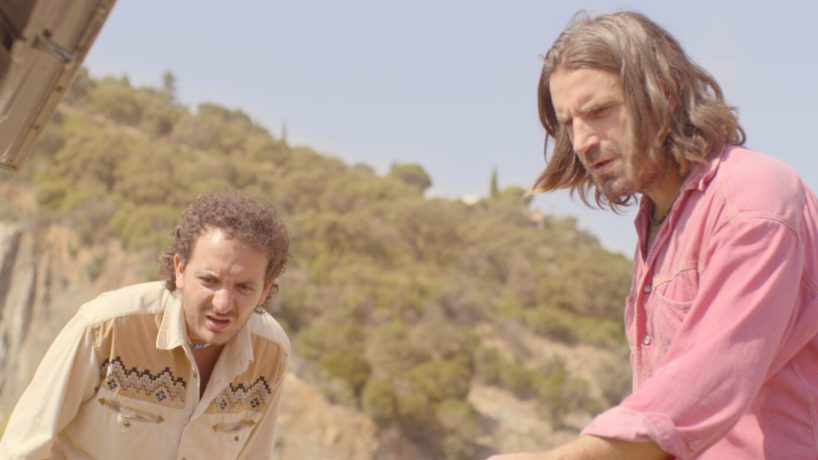
When the guys get caught up in a case of mistaken identity and find themselves staying at a vacation home with a group of strangers, Jean-Gab's protective paternal instincts kick in. He doesn't want anyone to know about Dominique, especially the inquisitive and slightly "off" houseguest Agnès (Adèle Exarchopoulos), but Agnès knows something is up, and she's determined to figure out what it is.
Mandibles is low-hanging fruit for comedy fans; the film's light-hearted nature doesn't strive to be anything other than zany and oddball kooky but at times, this chaotic jumble also rubbed me the wrong way. Personally, I find it grating when characters constantly yell and one of Agnès' character traits is her inability to control her speaking level, so those moments were a bit hard to sit though.
Going into any Quentin Dupieux film, you're probably not expecting thought-provoking, Oscar-qualifying work. That's the joy in his movies, they're original, completely fun, and entirely wacky. Mandibles is truly something you have to see to believe.
Distributed by Magnet Releasing. In theaters Friday, July 23.
'Roadrunner: A Film About Anthony Bourdain' Review: To Savor An Icon
It still feels surreal to talk about Anthony Bourdain in the past tense. Anthony Bourdain was charismatic. He was revolutionary. And he definitely was gone too soon. When Bourdain passed away three years ago at the age of 61, the conversation around mental health struggles wasn't nearly as normalized as it is today. It was still prevalent, just conversationally taboo. But as director Morgan Neville explores in the documentary Roadrunner: A Film About Anthony Bourdain, the larger than life TV personality wasn't necessarily keeping quiet about the horrible disease that was depression and suicidal thoughts: he was crying out for help on camera. We just weren't watching closely enough.
Morgan Neville (20 Feet From Stardom, Won't You Be My Neighbor?) harmoniously captures the pleasures and pains of Bourdain colorful life, and is careful not to ruminate too long on his demons. Told through Bourdain's own voiceover narration (a very meta move), Roadrunner is an engrossing look at how he went from "dishwasher, to cook, to chef, to fuck-up" (his words). After the overnight success of his book Kitchen Confidential entered the cultural zeitgeist, Bourdain took his talents to TV. It's here where he became a household name, traveling the world in search of great food and bridging the gap between countries in his hit shows No Reservations and Parts Unknown.
In poignant narration, Bourdain admits that he had the greatest job in the world, but it was one he could never escape from. This affected his mental health, family life, and relationships with colleagues and friends. For as widely loved as he was, Bourdain was lonely. Despite his success and acclaim, he openly admits that he questioned everything constantly and had often thought about harming himself.
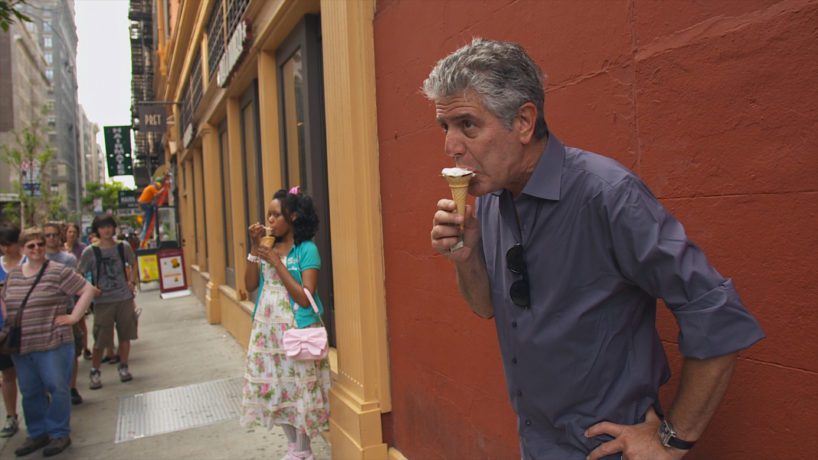
His addictive personality eventually moved from his work life to his love life in the form of an Italian actress and early Harvey Weinstein #MeToo accuser Asia Argento, and this is when those closest to the TV personality noticed a shift in his demeanor. Interviews with the production crew, his ex-wife, and friends say Bourdain's complete obsession with her contributed to his downfall, although we should be careful not to blame Argento herself for his death. After all, he was the one who made the devastating decision to end his own life, no matter how heartbroken she made him feel.
Morgan Neville is the perfect person to capture this complicated figure, flaws and all. Anthony Bourdain lived with an irreplaceable spark and charisma that made him feel like a close, personal friend and that's what makes this documentary so hard-hitting and culturally important. In one of the film's earlier scenes, Bourdain talks openly about dying. In his signature style of cheeky humor, he tells a colleague that thinking about his death is "therapeutic." Retroactively, though, it's clear that he was only half-joking. Roadrunner offers a glimpse into the inner thoughts of Bourdain himself and while it has a somber through line, there is optimism and peace sprinkled throughout.
And man, does it feel good to see him on the TV screen again.
Distributed by Focus Features. Opening this Friday at The Landmark in West LA, Laemmle Monica, Laemmle Pasadena Playhouse 7, Laemmle NoHo 7, AMC Century City, AMC Sunset 5, AMC Universal Citywalk, AMC Burbank 16, Alamo Drafthouse Downtown, and Regal LA Live, among others.
'Summertime' Review: Visual Poetry Lights up Los Angeles
When Amanda Gorman took the stage in January at the 2021 Presidential Inauguration, two things happened. One, she sparked a meteoric rise of her own accord, landing nationwide notoriety, book deals, and an IMG modeling contract. She also–maybe more importantly–normalized and encouraged younger generations to explore spoken word poetry for themselves, proving that age is not a factor when it comes to self-expression.
In his latest film, director Carlos López Estrada (Blindspotting, Raya and the Last Dragon) shows how the streets of Los Angeles are filled with inspirational youth who are ready to speak their truth in the spoken-word musical, Summertime. Like an indie version of In the Heights for millennials (complete with mixed races and various skin tones!), Summertime is a feel-good film full of literal visual poetry and promising artists of tomorrow.
The story of how Summertime came to be is just as impressive as the film itself. Together with López Estrada and Executive Producer Kelly Marie Tran, twenty seven youth poets workshopped their material over the course of one Summer in Los Angeles. The result is this feature film, a loose narrative structure comprised of intersecting stories from the poets themselves, all of whom make their feature film debut as co-writers and stars.
Depending on the scene (and therefore the dialogue), Summertime is a mix of emotional, comedic, and nostalgic instances that reflect the authenticity of the poets. One scene humorously calls out the prices at trendy Los Angeles eateries, and how a piece of avocado toast costs the same as basic livelihood necessities for lower income communities. Another scene shows an empowered queer woman giving a fierce monologue as she stands up for another same sex couple on a metro bus. Perhaps the most heart-wrenching scene comes in the form of a formally insecure woman finally standing up for herself to a manipulative ex-boyfriend.
I believe the success of Summertime comes from untraditional factors. The overall narrative and acting is fairly good, not outstanding, but what makes this film unforgettable is the outpouring of pure visual poetry (which outweighs any nitpicky criticism). Dave Harris, Mila Cuda, Olympia Miccio, Tyris Winter, Amaya Blankenship, Bene't Benton, Hanna Harris, Marco Bizio, Raul Herrera, Bryce Banks, Marquesha Babers, Walter Finnie Jr., Anna Osuna, Zach Perlmutter, Jason Alvarez, Austin Antoine, Maia Mayor, Madyson Park, Xochitl Morales, Paolina Acuña-González, Marcus James, Gordon IP, Cyrus Roberts, Pathum Madigapola, Nia Lewis, Daniel McKinley, Khamal Iwuanyanwu, and Lukas Lane: job well done. Thank you for sharing your stories with us.
Distributed by Good Deed Entertainment. Now playing in select theaters in Los Angeles and New York. Expanding nationwide Friday, July 16.

